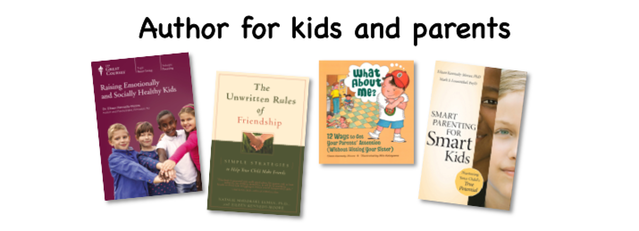Resilience
Struggles That Make Kids Stronger
Kids learn resilience by overcoming ordinary suffering.
Posted July 1, 2016
It’s natural for us parents to want to protect our children from pain and suffering, but if we rush to rescue children from problems that they could solve on their own, we prevent them from learning how to cope. Well-intentioned comments like, “Here, let me do it,” “I’ll talk to the teacher for you,” or “I’ll take care of it,” tell children, “You can’t handle this.”
Sometimes the best thing we can do for our kids is to allow them to struggle. This helps our children develop important life skills, and it also shows our faith in their ability to grow and learn.
Here are five character-building struggles that our kids can and should handle on their own. We can help by asking relevant questions or expressing support and understanding, but the solutions for these problems need to come from children themselves.
Boredom
Contrary to your child’s protests, no one ever died or even became seriously injured from boredom. When your child complains of feeling bored, don’t feel like you have to solve this. If you just wait, your child will eventually figure out something to do.
Choices
Whether it’s activities or ice cream flavors, choosing one option implies giving up other options. This can be frustrating or scary, but it’s also good practice. Making simple choices helps kids learn to weigh options and figure out what matters to them. And if they make a “wrong” choice, they can learn to tolerate disappointment and resolve to make a different choice next time.
Losing
An important part of play, from the elementary school years onwards, involves learning that winning and losing are temporary states. If we protect our children from losing, they may think that losing is unbearable and that cheating and being a poor sport are reasonable options. When we let our kids lose, we give them the chance to learn that they can handle setbacks and try again.
Messing up on a school assignment
Occasionally missing a homework assignment or forgetting to study for a test can be a learning opportunity. Kids can see that the world doesn’t end if their work is sometimes less than perfect, and they can make plans to prevent mistakes in the future.
Arguing with a friend
Arguments are a normal part of children’s friendships. Learning to resolve disagreements through persuasion, compromise, graciously giving in, or just “forgiving and forgetting” can help children develop people skills they will use throughout their lives.
Can you think of a time when you deliberately didn't "rescue" your child? What did your child learn from this experience?
Related posts:
Making Up is Hard to Do…For Kids
What's the Hardest Stage of Parenting?
__
© Eileen Kennedy-Moore, PhD. Subscribe to monthly NEWSLETTER to be notified about new Growing Friendships posts.
Eileen Kennedy-Moore, PhD, is a clinical psychologist, author, and speaker, based in Princeton, NJ (lic. # 35SI00425400). Her books and videos include: Raising Emotionally and Socially Healthy Kids (audio/video series), Smart Parenting for Smart Kids, The Unwritten Rules of Friendship, and What About Me? 12 Ways To Get Your Parents' Attention Without Hitting Your Sister (for kids).

Growing Friendships blog posts are for general educational purposes only. You’re welcome to link to this post, but please don’t reproduce it without written permission from the author.
Photo credit: “A brief show of power (and energy) with SFO in the background” by Jennifer Carole / CC BY 2.0-ND


